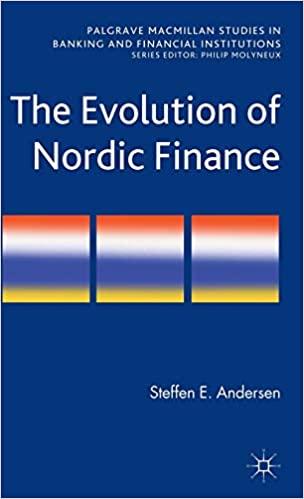Answered step by step
Verified Expert Solution
Question
1 Approved Answer
Consider an integrated real - options - based model of corporate investment and financing. This model synthesizes the capital structure decisions of Leland ( 1
Consider an integrated realoptionsbased model of corporate investment and financing. This model synthesizes the capital structure decisions of Leland and investment as a real option exercising problem of McDonald and Siegel
The firm starts with no cash flows and simply holds a perpetual Americanstyle investment option, which can be exercised at any time by paying a onetime fixed investment cost I.
After exercising its investment option, the firm starts generating a stochastic perpetual cash flow process, which is given by
and is a standard Brownian motion.
The riskfree interest rate is constant. For convergence, let the expected growth rate be lower than the interest rate, in that Assume no production cost after the asset is in place.
At the endogenously chosen stochastic investment time the firm issues a mixture of debt and equity. As in standard tradeoff models of capital structure, debt has a tax advantage. The firm faces a constant tax rate on its income after servicing interest payments on debt. To balance the tax benefits, debt induces deadweight losses when the firm does poorly. The firm dynamically trades off the benefits and costs of issuing debt. For analytical convenience, assume that debt is perpetual and is issued at par as in Leland Let denote the firm's coupon payment for its debt outstanding. The assumption of perpetual debt simplifies the analysis substantially and has been widely adopted
in the literature. For your technical convenience, we assume that the firm can only issue debt at investment times
That is once debt is issued, the equity holders receive and debt investors collect until the firm defaults at
Upon default at the firm's recovery value is
Equity holders are protected by limited liability. Absolute priority rule APR holds in that equity investors will only get paid upon liquidationdefault if creditors are fully repaid. Here debt holders will seize all the recovery upon default. All agents have rational expectations.
Answer the following questions:
a Let be the bankruptcy boundary which is determined endogenously. Please write down the HJB equation of debt value for Provide appropriate value matching condition at and the asymptotic behavior of as
b Solve the boundary value problem in a by postulating that the
solution is of the form
c Write down the HJB equation of equity value and solve it
d What is the firm's leverage choice eg the amount of debt issuance and coupon payments at the moment of exercising the growth option? What is the firm's default strategy after debt is issued at Hint: you may pin down the default boundary by using the smooth pasting condition.
e What is the firm's optimal growth option exercising strategy?
f Let Use these parameter
values to plot the model solution, eg equity value, debt value, firm value, after the firm exercises the investment and financing options at ; and the firm value which is the same as the option value before Use and to denote the firm's levered equity, debt, and total firm value, respectively. Graph these value functions and their sensitivities and
Step by Step Solution
There are 3 Steps involved in it
Step: 1

Get Instant Access to Expert-Tailored Solutions
See step-by-step solutions with expert insights and AI powered tools for academic success
Step: 2

Step: 3

Ace Your Homework with AI
Get the answers you need in no time with our AI-driven, step-by-step assistance
Get Started


